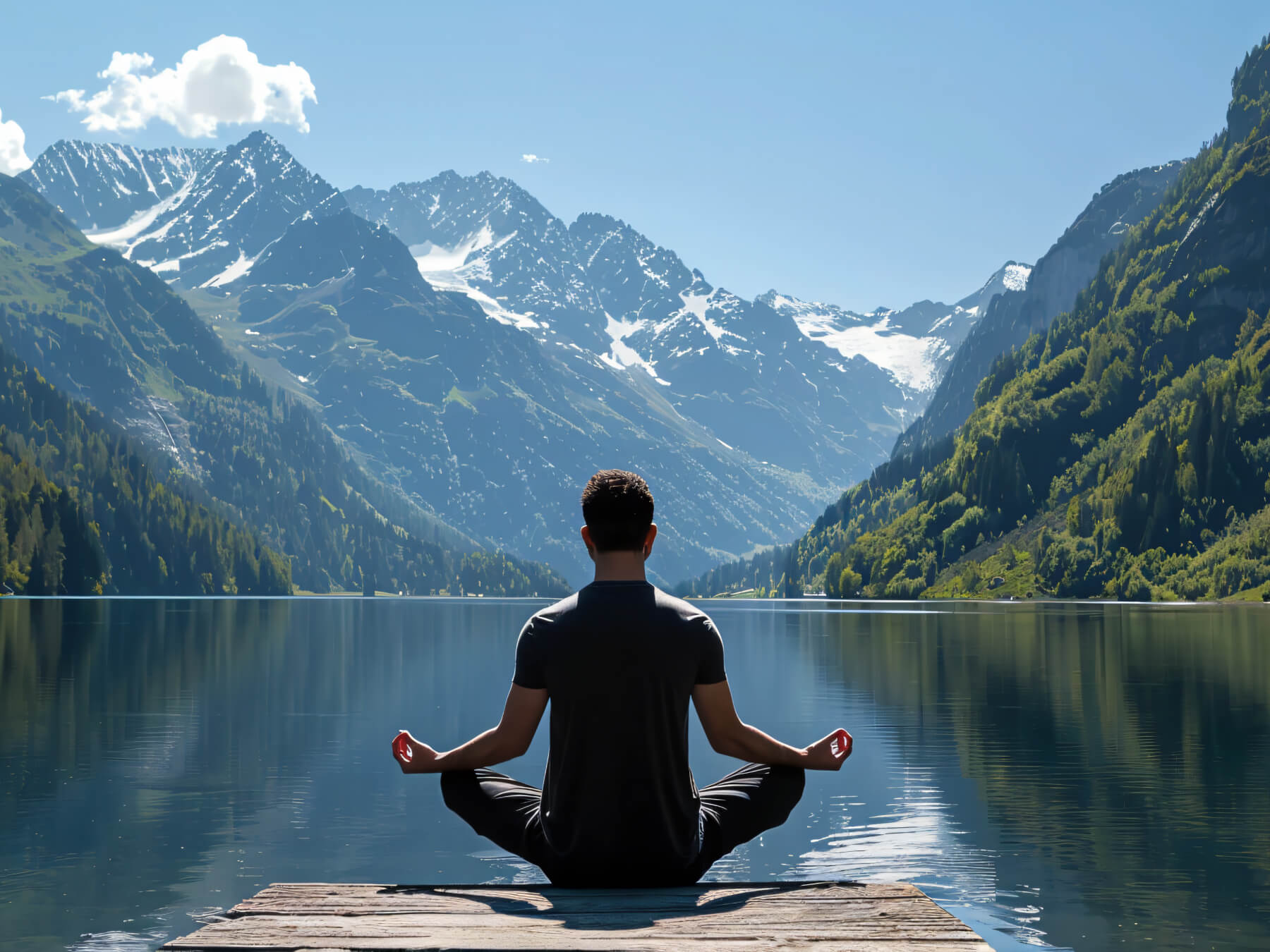© 2026 Euforia Digital, All rights reserved

In today’s fast-paced world, the constant influx of information can create a whirlwind of thoughts and emotions, often leading to feelings of anxiety, overwhelm, and disconnection. This noise can drown out our sense of self, making it difficult to navigate our emotions and foster a healthy relationship with ourselves. Mindfulness, as a meditation practice, offers a powerful antidote to this chaos, encouraging individuals to accept themselves and cultivate inner peace. By embracing mindfulness, we can reduce mental clutter and nurture a deeper connection to our thoughts, feelings, and experiences.
Mindfulness is the practice of paying deliberate attention to the present moment without judgment. It encourages us to observe our thoughts, feelings, and sensations as they arise, acknowledging them without becoming overly attached or reactive. This practice allows individuals to step back from the incessant chatter of their minds and cultivate a sense of calm and clarity.
At its core, mindfulness promotes self-acceptance. Many people struggle with self-criticism and negative self-talk, often exacerbated by the unrealistic standards set by society. Mindfulness teaches us to recognize these thoughts as merely mental events rather than truths. By observing our inner dialogue without judgment, we learn to accept ourselves as we are, fostering a compassionate and nurturing relationship with ourselves.
Reducing Information Noise: Mindfulness meditation helps individuals filter out the excess noise in their minds. By focusing on the breath, bodily sensations, or the sounds around us, we create a mental space that allows for greater clarity and peace. This practice can be especially beneficial in a world that bombards us with constant notifications, news updates, and social media stimuli.
Enhancing Emotional Regulation: Regular mindfulness practice equips individuals with the tools to manage their emotions more effectively. By learning to observe feelings without judgment, we can respond to them in healthier ways. Instead of being overwhelmed by anxiety or sadness, we can acknowledge these emotions, allowing them to pass without letting them dictate our actions.
Improving Focus and Concentration: Mindfulness trains the mind to concentrate on the present moment, enhancing our ability to focus on tasks at hand. In a culture that often prioritizes multitasking, this single-pointed attention is a valuable skill that can improve productivity and reduce stress.
Fostering Compassion and Empathy: As we learn to accept ourselves through mindfulness, we naturally cultivate a greater sense of compassion for others. This practice encourages us to approach interactions with empathy and understanding, creating more meaningful connections with those around us.
Encouraging a Sense of Belonging: Mindfulness fosters a sense of connection to oneself and the world. By tuning into the present moment, we become more aware of our surroundings and our place within them, nurturing a sense of belonging and connectedness.
Practicing mindfulness does not require any special skills or equipment; it simply demands your attention and a willingness to engage with the present moment. Here are some practical steps to incorporate mindfulness into your daily routine:
Start with the Breath: Begin by finding a quiet space to sit comfortably. Close your eyes or soften your gaze, and take a few deep breaths. Focus your attention on the sensation of your breath entering and leaving your body. If your mind wanders, gently bring your focus back to your breath without judgment.
Body Scan: Engage in a body scan meditation by directing your attention to different parts of your body, starting from your toes and moving upward. Notice any sensations, tension, or areas of relaxation. This practice helps to ground you in the present and fosters body awareness.
Mindful Walking: Practice mindfulness while walking by paying attention to each step. Notice the sensation of your feet touching the ground, the rhythm of your breath, and the sights and sounds around you. Walking mindfully connects you to the present and allows for a deeper appreciation of your surroundings.
Gratitude Journaling: Take a moment each day to write down things you are grateful for. Reflecting on positive aspects of your life helps cultivate a mindset of appreciation and fosters self-acceptance.
Guided Meditations: Utilizing resources like Euforia, you can access guided mindfulness meditations designed to reduce information noise and promote self-acceptance. Euforia offers a variety of mindfulness meditations tailored to different needs, helping you establish a consistent practice that fits your lifestyle.
Euforia is dedicated to providing tools and resources that empower individuals on their journey to mindfulness and self-acceptance. With a comprehensive library of guided meditations, Euforia makes it easy to incorporate mindfulness into your daily routine. Whether you're a beginner or an experienced practitioner, the platform offers a range of meditations tailored to help you cultivate awareness, reduce stress, and foster self-compassion.
By using Euforia, you can access meditations that focus on themes such as self-acceptance, letting go of negative thoughts, and creating mental clarity. With the guidance of experienced practitioners, you’ll be equipped to navigate your emotional landscape and embrace the present moment with confidence.
The practice of mindfulness is a transformative journey toward self-acceptance and clarity in an increasingly noisy world. By incorporating warm words of encouragement and fostering a compassionate internal dialogue, individuals can reclaim their sense of self-worth and navigate life with greater ease. Euforia stands as a supportive ally in this journey, providing the tools necessary to cultivate mindfulness and enhance emotional well-being. As you embrace mindfulness, remember that the journey is unique to you—every step taken is a step toward a more peaceful, centered existence.